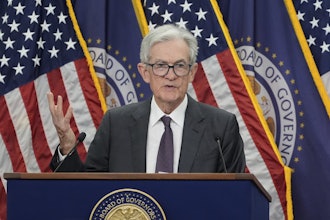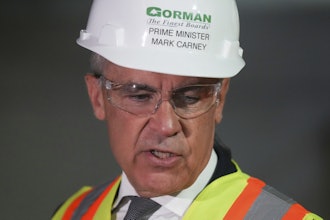Investing in U.S. infrastructure may be one of the few bipartisan efforts that financial institutions, manufacturers, policy makers and workers can all get behind. The new Coalition to Modernize America’s Infrastructure is a diverse group that advocates four principles for a truly transformative infrastructure package.
In the days following the presidential election, infrastructure seemed a likely candidate for immediate action in 2017. President Donald Trump committed in his election night speech to rebuild our infrastructure so that it is “second to none.” Members of Congress on both sides of the aisle agreed that infrastructure should be high on the agenda. But all too soon, optimism for an infrastructure package faded. Infrastructure proponents retreated to their usual corners, with the new administration calling for tax credits to attract private investment and Democrats pushing for public funding.
Fixing America’s infrastructure is too important to allow the issue to languish any longer. That is why the Bipartisan Policy Center’s Executive Council on Infrastructure is spearheading a new Coalition to Modernize America’s Infrastructure. This coalition represents thousands of businesses, elected officials and working men and women from every state in the nation.
An infrastructure package would create millions of jobs, maintain the health, safety, and security of our communities and put our nation on track for decades of greater prosperity. It is critical that Congress passes, and the president signs, such a package.
To achieve this, there are four principles that form the basis of a truly transformative infrastructure package.
- Infrastructure—including transportation, energy, broadband, water and wastewater—must be a national priority in order to ensure future economic prosperity. Many of our systems for building and maintaining infrastructure are in crisis, and there is a growing desire among the American people for our leaders to move beyond the status quo. We need the new administration and Congress to work together to ensure that our nation’s infrastructure supports the health and safety of Americans and provides our communities a foundation for future economic prosperity.
- Robust, reliable, long-term federal funding is essential. Federal infrastructure programs such as the Highway Trust Fund and the revolving loan funds for water are underfunded and unable to meet current demands. While states, cities, counties and other public and private infrastructure providers must keep up their commitment to fund needed infrastructure, they cannot do it alone. The federal commitment to infrastructure must be restored.
- The United States should unleash the resources of the private sector as partners in addressing our infrastructure needs. Removing barriers and providing incentives for public-private partnerships will allow public agencies to share the long-term costs and risks of infrastructure projects as well as benefit from private sector expertise and innovation.Moreover, complementing the successful tax-exempt debt market with an expanded set of financing programs – such as private activity and direct payment bonds and tax credits – would ensure that all sources of private capital can be engaged.
- The United States should adopt policies to deliver modern infrastructure more quickly and at less cost. By expediting permitting, modernizing procurement practices, promoting innovation and committing to project analysis that focuses on long-term risk management, the federal government can extract greater value out of limited funds and support the delivery of higher quality, longer lasting infrastructure. Government, industry, and labor must work together to implement these changes while also promoting employment standards that increase both job quality and access and ensure that we are leveraging infrastructure investments to utilize the safest, most skilled and most productive workforce in the world.
These bipartisan principles are supported by both business leaders and government officials, both employers and employees and by many different infrastructure sectors. Representing that infrastructure isn’t a singular, “special interest” topic, the coalition is an “all of the above” approach that includes a myriad of groups: the Business Roundtable, the U.S. Chamber of Commerce, the National Governors Association, North America’s Building Trades Unions, the Securities Industry and Financial Markets Association and the National Association of Manufacturers as founding partners.
Our coalition members recognize that our economic future is not the sole responsibility of either the public sector or the private sector, but must be shared among both.
Sarah Kline is a Bipartisan Policy Center Fellow and Michele Nellenbach is the Director of Strategic Initiatives at Bipartisan Policy Center. Article published via GE Reports.























